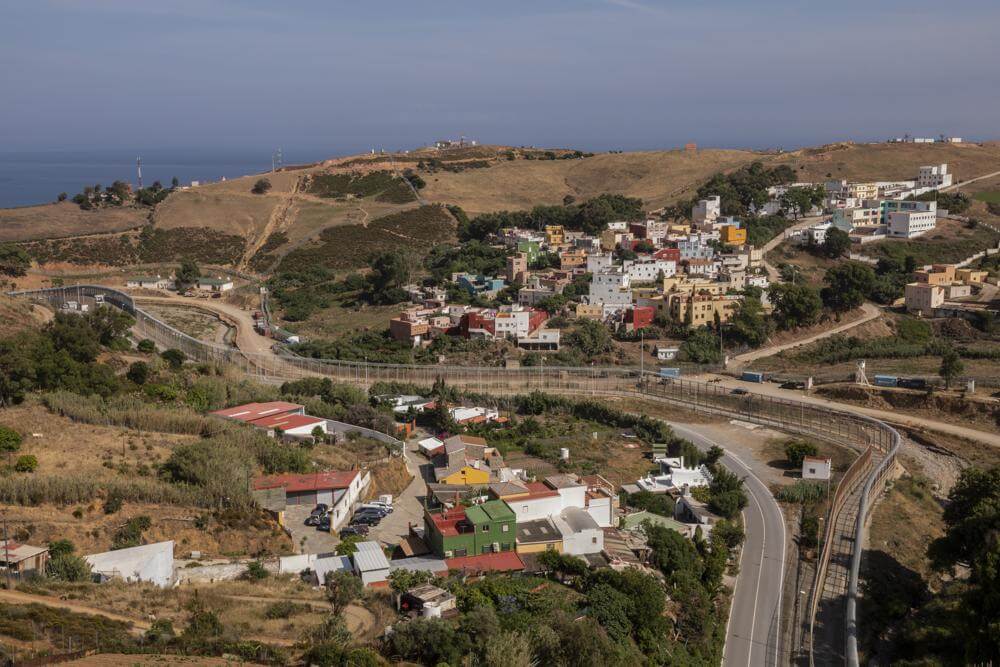Spain and Morocco opened their land borders at the Spanish enclaves of Ceuta and Melilla on Tuesday for the first time in two years after an improvement in ties over Madrid’s decision to recognise Rabat’s autonomy plan for the disputed Western Sahara region.
The Associated Press reported that large crowds at the border crossings in Tarajal, Ceuta, and Beni Enzar in Melilla to witness the reopening ceremony. The crossings have initially been limited to Europe’s Schengen Area residents and will be expanded to include cross-border workers by the end of this month.
Furthermore, Melilla regional President Eduardo de Castro said that it will take months for customs controls at the border to become fully operational.
Last week, the Spanish Interior Ministry announced that both countries planned on opening their borders along the enclaves for the first time since the outbreak of the coronavirus pandemic in 2020. The Ministry stated that authorities had agreed to the reopening after Spanish President Pedro Sánchez met with Moroccan King Mohammed VI in April.
Noting that the reopening will be followed in a “gradual and orderly” manner, Interior Minister Fernando Grande-Marlaska said that “Spanish-Moroccan working groups will determine the following categories of people and goods that will be able to access Ceuta and Melilla through the border with Morocco.”
Moreover, the Ministry announced that it is reinforcing the police force stationed at both enclaves to guarantee security needs.
The move to reopen the borders comes amid improving ties between Madrid and Rabat, especially since Spain recognised Morocco’s autonomy plan for the disputed Western Sahara region in March. The proposal, made 15 years ago, would provide the region with a semi-autonomous status under the larger control of Rabat. The 2007 plan also aims to transfer some political and judicial powers to the residents of Western Sahara, who are mostly ethnic Sahrawis.
The move was hailed by Morocco, which had been opposed to Spain’s decades-long refusal to recognise Moroccan sovereignty over Western Sahara. Spain’s decision was also welcomed by the United States and the European Union, giving more credibility to Morocco’s claim over the disputed region.
The Western Sahara dispute’s roots can be traced all the way back to Spanish colonial rule. When Spain withdrew from the region in 1975, Morocco annexed virtually 80% of Western Sahara.
The Sahrawi people took the remaining area, whose national liberation movement is known as the Polisario Front. They seek to establish an independent Sahrawi Arab Democratic Republic (SADR), which Morocco has refused to accept, leading to a 16-year war between the Polisario Front and Morocco between 1975 to 1991 and periodic bouts of violent confrontations.
Spain’s decision to recognise Morocco’s sovereignty over Western Sahara also stems from Madrid’s need to curb illegal immigration from the Middle East and North Africa. Spain is reliant on Morocco’s help to curb the tide of refugees, as the majority of migrants from across the Middle East and North Africa travel to Europe via Morocco.
Also Read: Spain’s Recognition of Morocco’s Sovereignty Over Western Sahara is Counterproductive
Moreover, Rabat has used its control over the flow of migrants to gain leverage with Europe. For instance, after Spain had covertly allowed Polisario Front (PF) leader Brahim Ghali to receive treatment for COVID-19, Morocco allowed thousands of migrants from sub-Saharan Africa to enter Ceuta, a Spanish enclave on the coast of Morocco, and also recalled its ambassador from Spain.
In this respect, Spain’s recognition of Moroccan sovereignty was meant to prevent Morocco from using the migrant issue against it.
However, Algeria, which has remained a strong backer of the Polisario Front, has expressed serious concerns over Spain’s move. Algeria not only recalled its ambassador to Madrid but has also threatened to cut natural gas supplies to Spain, a potentially disastrous move at a time when Europe is trying to reduce gas imports from Russia and looking for alternative sources.

